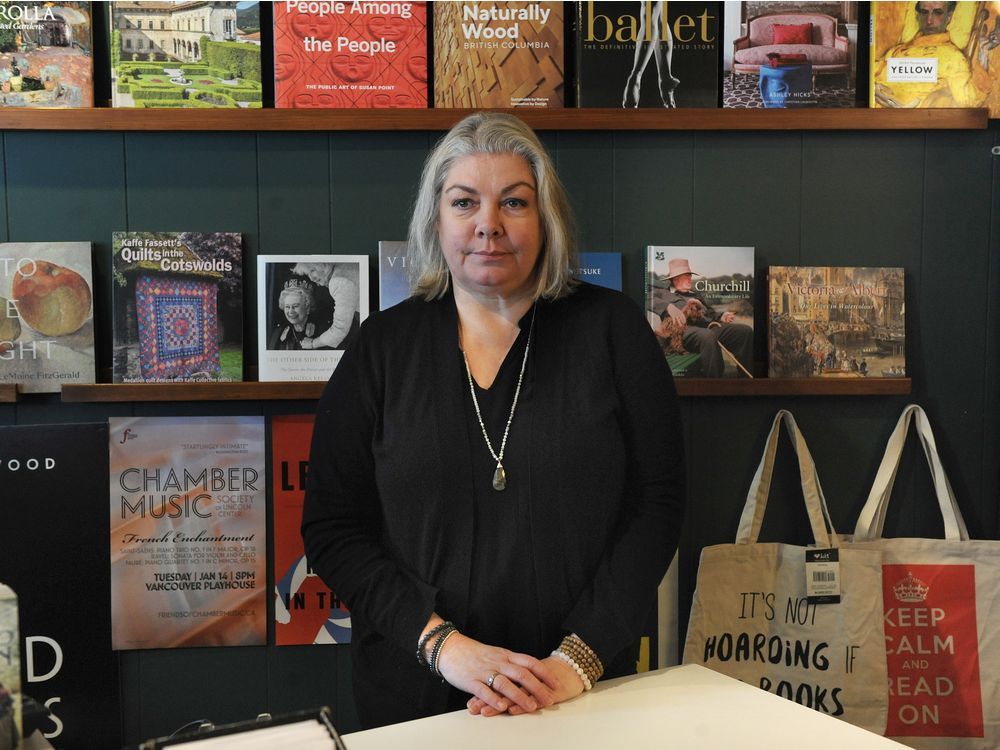B.C. small businesses brace for more property tax pain, but minister says relief 'on the horizon'

Credit to Author: Dan Fumano| Date: Tue, 14 Jan 2020 01:40:54 +0000
Andrea Davies is expecting a property tax bill in the mail this month for the bookstore she’s run for decades, and, she says, she’s “never been so nervous.”
That’s because Davies’ business, the 46-year-old Kerrisdale institution Hager Books, is one of many family run retailers in Vancouver struggling with huge property tax increases in recent years. Hager Books’ property tax bill grew by more than 50 per cent over four years, from roughly $20,000 in 2015 to $32,000 last year.
That’s largely because B.C. properties are assessed and taxed based on “highest and best use.” That means older businesses in single-storey buildings on arterial streets, like Hager Books on West 41st Avenue, are assessed based on development potential, which would often be a multi-storey building with residential units above ground-floor commercial space.
“We’re paying the tax on four floors instead of just one,” Davies said. “I’m going to get an invoice in January and heaven knows what it’s going to be this time.”
Despite the challenges faced by brick-and-mortar shops in the age of online shopping, Hager Books doesn’t lack for customers, said store manager and Davies’ stepdaughter Carrie Darragh, and although profit margins are tight, sales volumes have remained solid in recent years.
Darragh hopes to be the next generation of the family to run the business, but property taxes are the single biggest threat to its continued existence.
Asked what will happen if taxes keep increasing, Darragh replied: “I don’t like to think about that, but it could be tragic.”
The issue has been affecting a growing number of businesses spreading throughout the Metro Vancouver region and beyond. Soaring property assessments are often accompanied with big property tax hikes, a burden typically borne not by the commercial property owners, but passed on to their tenants, the business owners like Davies. That’s because most Vancouver businesses, including Hager Books, pay so-called “triple net leases,” meaning the tenant covers the rent, maintenance fees and property taxes.
And this year, at a time when residential assessments dropped by as much as 15 per cent in Greater Vancouver, commercial property assessments increased by as much as 20 per cent.
Canadian Federation of Independent Business (CFIB) senior policy analyst Muriel Protzer said the impact is likely to be particularly tough this year where rising property assessments combine with the growing annual budgets of many B.C. municipalities, including Vancouver’s recently approved $1.6-billion budget, which includes an estimated six per cent property tax increase for businesses.
Last year, the CFIB was part of a group including representatives from Vancouver and other Metro municipalities calling on the provincial government to create a new property “subclass” to provide relief for businesses impacted by tax increases on the property’s development potential. But representatives for the Ministry of Municipal Affairs and Housing said last fall that the legislative changes required to create the subclass wouldn’t be possible in time for the 2020 tax year. But the government said it would find an “interim solution” in the meantime, while working toward a permanent solution.
On Monday, Municipal Affairs Minister Selina Robinson said details of those interim measures should be unveiled “in the coming weeks.”
“I have promised relief for the 2020 tax year and I want to let you know this relief is on the horizon,” Robinson said Monday in an emailed statement. “As I’ve promised, this solution will come in time to provide tax relief for small businesses, non-profits, and arts and culture organizations this year.”
Protzer had hoped to hear details about those interim solutions released before the new year, but, she said, it has so far been “radio silence.”
And in the absence of details about the interim measures, Protzer worries they will amount to little more than a “Band-aid solution.”
“I’m really hopeful that the province is listening to the number of voices coming forward and saying that this (creating a new property subclass) is indeed the solution we need. We said it last fall, and we’ll continue to say it throughout 2020,” she said. “We need really meaningful tax relief and we see this as the solution.”